Adam’s escape from Mariupol
Adam survived the Russian siege of Mariupol. He spent a month in the war-ravaged harbor city. Here he tells about his experiences.
War, Siege, Suffering. What Vladimir Ivanov experienced in Mariupol, like many of the port city’s once 400,000 residents, in the wake of the large-scale Russian invasion is difficult to comprehend. “What was shown and described in the media was a dream compared to reality,” assures the 32-year-old, who prefers to be called Adam after his middle name.
One month horror
He says he endured a month in catastrophic conditions before he made it out of Mariupol. Adam now lives in Dnipro – north-western of his home town – and has been given a room by a hostess.
When Adam talks about those four weeks, he speaks quickly, sometimes almost frantically. Instead of lounging comfortably on the couch, he sits on the armrest, his legs drawn up. At the same time, he fears that his emotions will be lost in the translation into English. Again and again he interjects himself in English to underline what he has said.
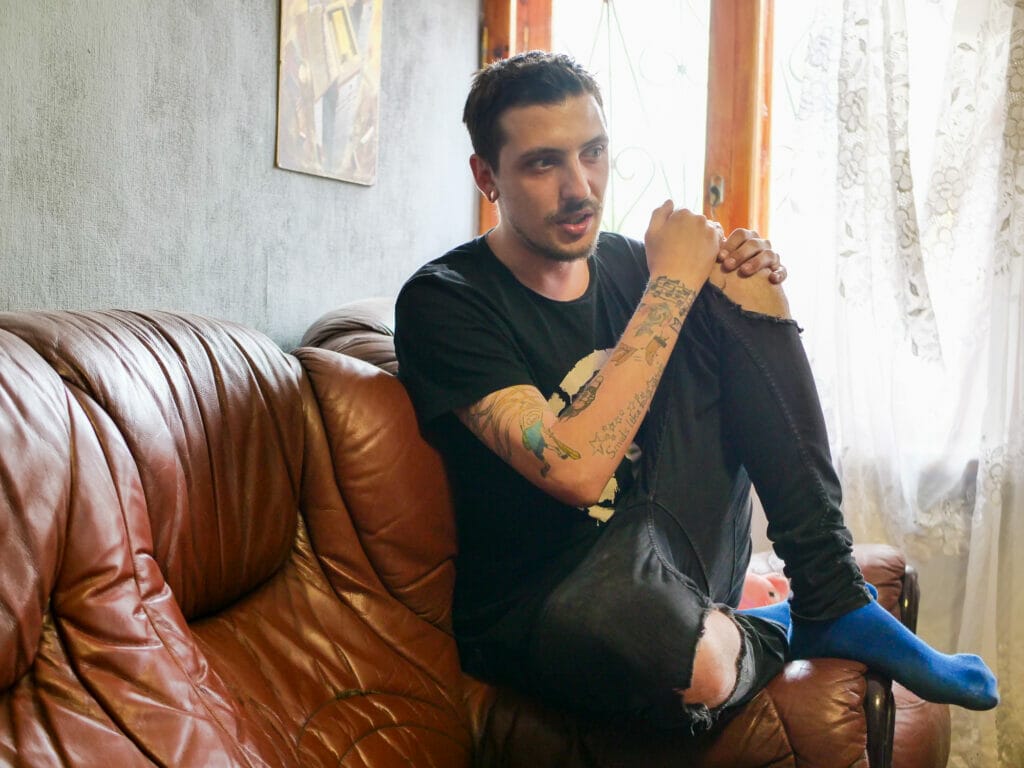
Negligent gut feeling
Adam says he heard the explosions at the start of the large-scale Russian offensive in Ukraine. Since he lived on the outskirts, even better – and only a few days later the first Russian tanks rolled through the streets of Mariupol. Electricity and water failed, and petrol was quickly running out. The siege of the harbor city began.
However, a shelter in the basement or a bunker was out of the question for him. “I had the feeling that if I stayed, the bombs wouldn’t come,” he describes. This feeling did not deceive him until his escape at the end of March. “I’m crazy, really,” Adam follows in English and grins.
Victim of hostage in 2014
This relaxed – if not downright negligent – attitude is also likely to stem from past experience. As a hooligan and football fanatic, as Adam describes himself, he was already involved in the riots in Mariupol in 2014 and was one of the hostages. “We wanted to protect our mayor from the Russian troops,” he says, clarifying which side he was on at the time. “But they couldn’t hold us for long, they let us go,” he says. However, his mother died due to the combats that year.
This certainly did not prepare for the atrocities this year. Three of them had to share a portion of pasta a day. “I don’t need much to survive,” Adam says at first, but later admits, “I was more worried about food and drink than I was about bombs.” He knows, however, that some have suffered even worse fates. “In a basement, 20 people died because of the cold,” says Adam in a shaky voice. He himself buried six children in his neighborhood who died in rocket attacks.
The magic moment of Mariupol
Despite these experiences, his facial expressions brighten again later when the 32-year-old describes a phenomenon that he called “magical”. Because when he heard about the first looting, he feared the worst for the residents. It just shouldn’t happen. On the contrary: “We have become friendlier to each other.” People who would otherwise have hardly been interested in each other now supported each other in times of need in order to survive the siege; while fuel and cigarette prices skyrocketed. Adam had the first evacuation buses pulled to help his friends. He also opened his door to offer other people a place to sleep.
In this phase he and his friends would also have recognized the value of life. “Most people have work to survive,” says Adam in retrospect. He himself worked in a nightclub every day for two years to save $800 for dental care – only to now spend it on gas. “Now we want to follow our dreams,” he emphasizes. What this is for him? Make movies or win a Pulitzer Prize. He recently gained experience in investigative work in Dnipro, for example when he discovered fraud at aid organizations and reported it to the authorities. “Now I want to do what I want,” he clarifies – he is currently tired of volunteering, so he lets it rest. He is also active as an artist, naming Jackson Pollock as his idol. As an environmental activist, he would also like to see better waste separation and the legalization of cannabis in Ukraine.
Evacuation as hitchhiker
From Mariupol he made it at the end of March. First walking out of town, then hitchhiking through all the controls to Zaporizhia. Adam holds out his fist with his thumb up to illustrate this. He took a few things with him, including his camera, actually to sell them later. “But it was taken off,” says Adam, and then adds in English: “Fucking Russians.” He had to undress completely several times because of his tattoos. “They also threatened that we would have to go back into the basement,” he adds. He later went to Dnipro with a friend, although he would have preferred to go further west himself.
As someone who loves punk rock as well as football and works for equal rights for people, he hopes for a victory for the Ukrainian army. “These are great people,” Adam emphasizes. He himself knows around 200 members of the Azov regiment, which has often been criticized for its right-wing extremist connections, from previous concerts and events – he doesn’t want to say a bad word about them. “They brought food to the cellars; telling people when it’s safe to come out and reassuring them,” he elaborates.
Surrendering is no option
After the experiences in Mariupol, he is convinced that the war can only have a happy ending if Ukraine wins a military victory. Surrender? “They would starve and kill us, like during Holodomor1 “Great Famine” 1932/33 triggered by the destruction of agriculture and forced collectivization with an estimated 3.5 million deaths in Ukraine,” he fears the worst. After that would come Poland and all countries that would not think like Russia with its imperial ambitions. “I’m not a Ukraine fanatic,” Adam now explains in English. He loves Russian poets, has researched Russian websites for a long time and still respects the culture. But he now also recognizes: “It always had a negative attitude towards Ukraine.”
Footnotes
- 1“Great Famine” 1932/33 triggered by the destruction of agriculture and forced collectivization with an estimated 3.5 million deaths in Ukraine
Vorgeschlagene Beiträge
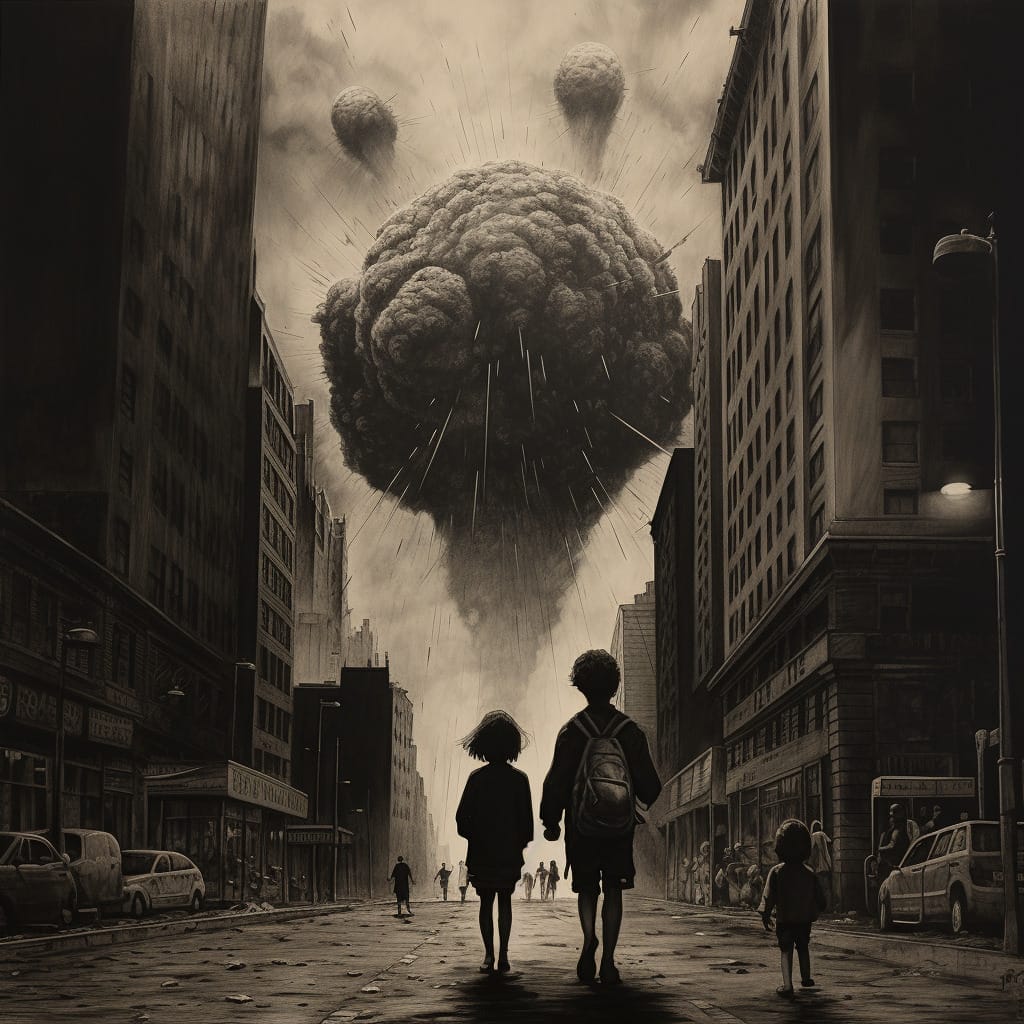
Haunted by war: Ukrainian Jews in Israel face missile attacks – again
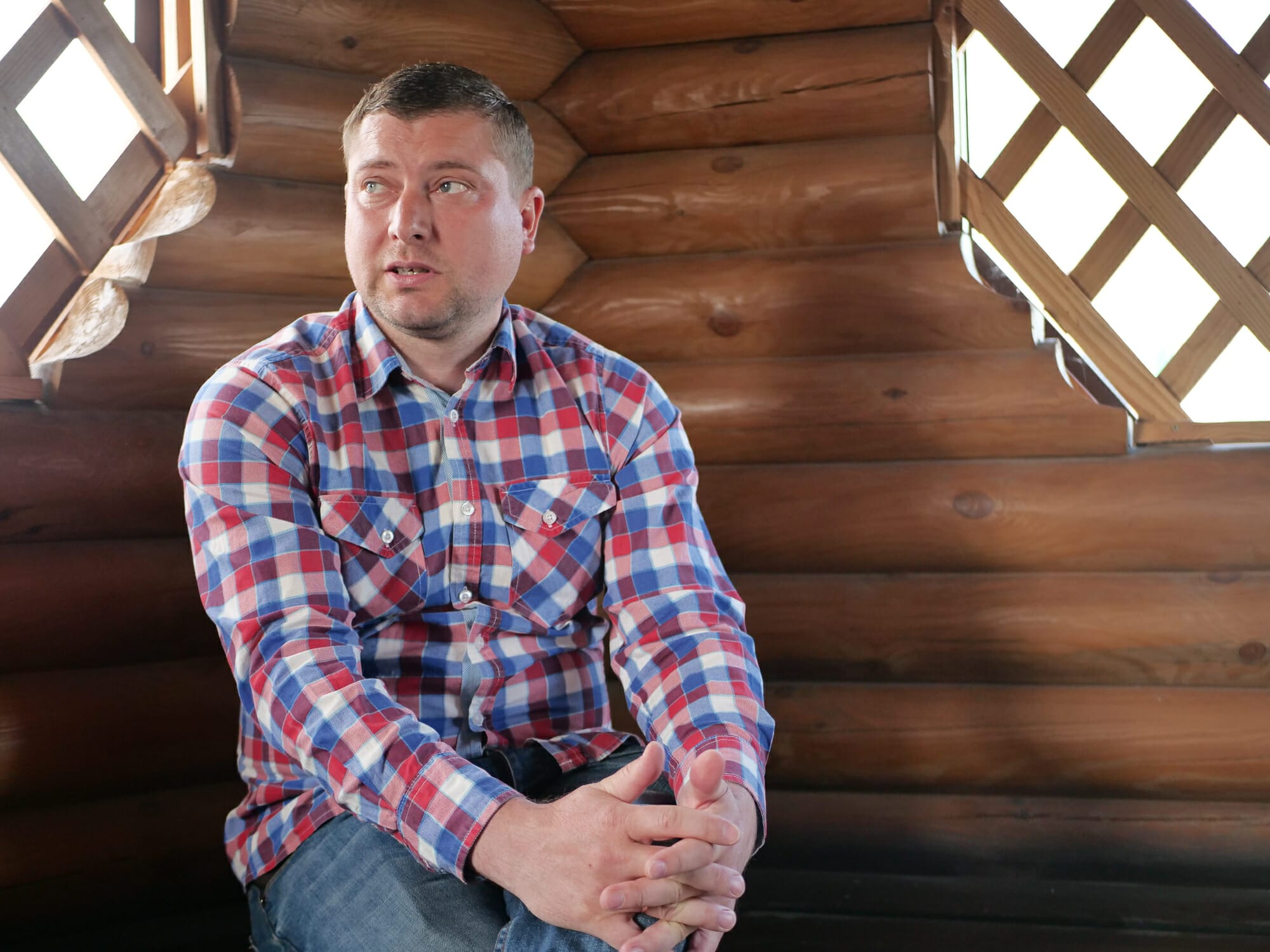
Dmitro Soochekov’s painful return to Bakhmut
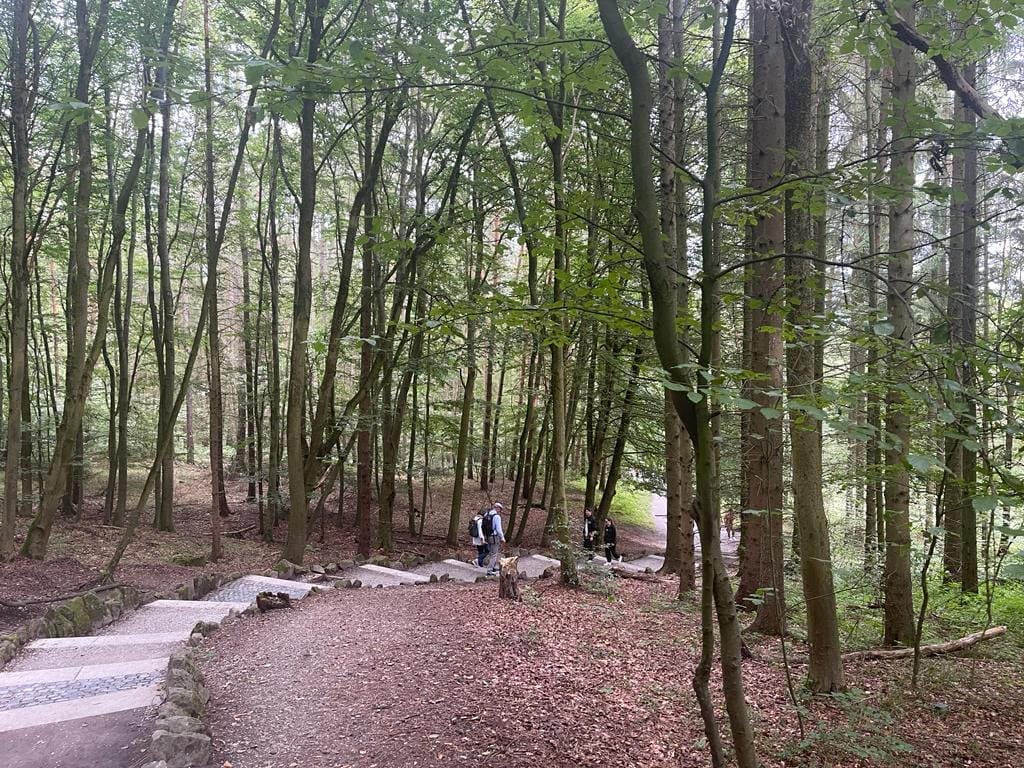
Reflection of a life: How Jamila left Afghanistan in search for safety
[mc4wp_form id=239488]

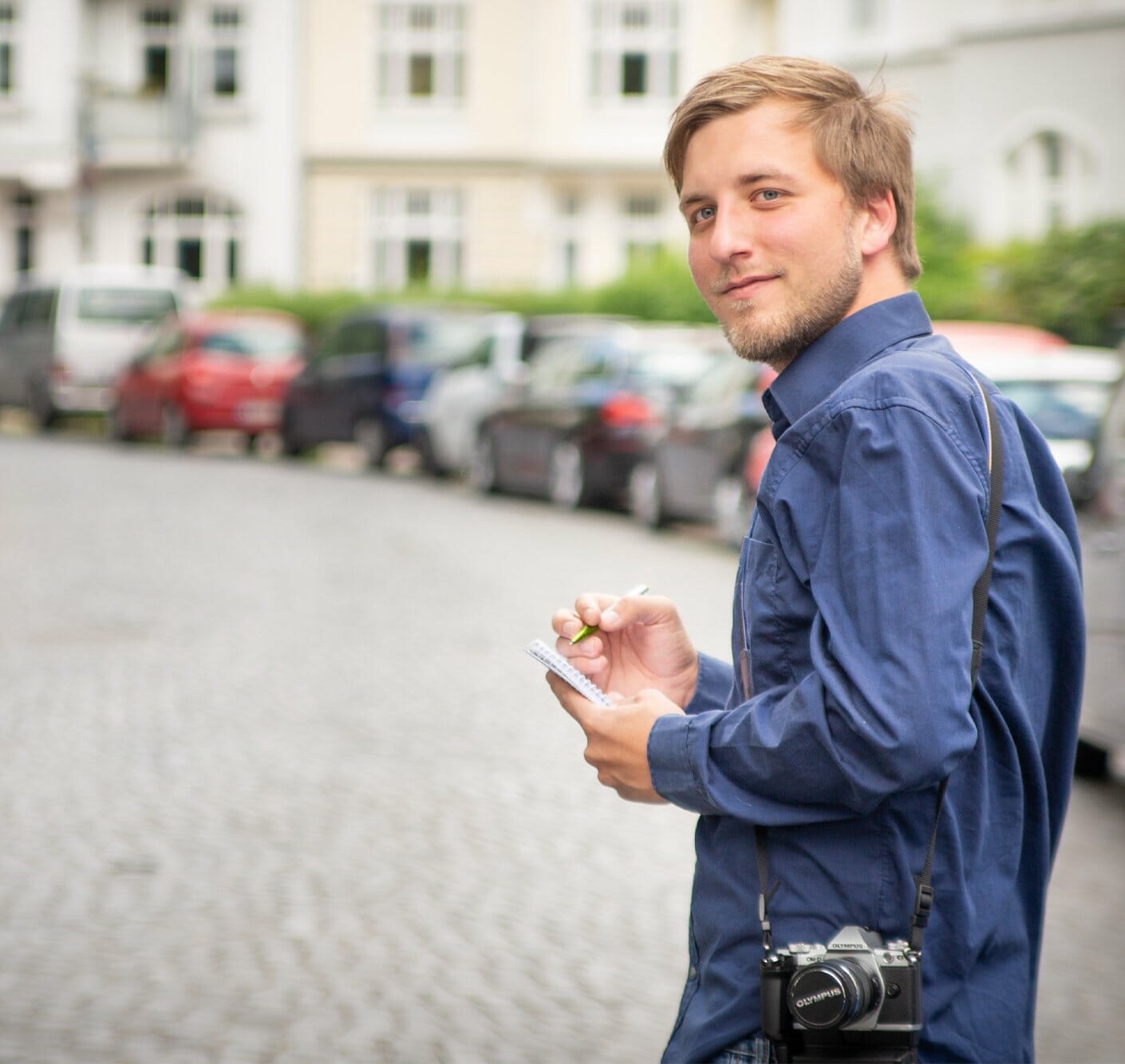
Leave a Reply
You must be logged in to post a comment.